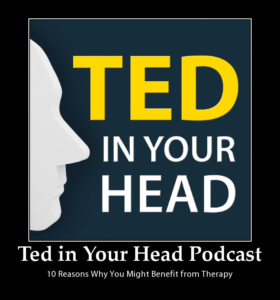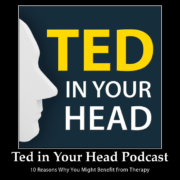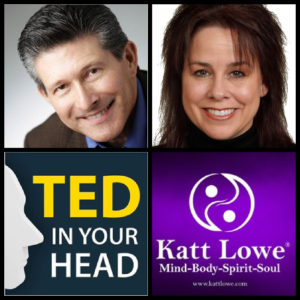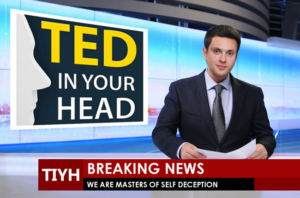10 Reasons Why You Might Benefit from Therapy – Episode 458

Let me tell you right off that I have a great job. I love my job. People come to me with all sorts of challenges including challenges with their families, work, health, and emotions. Through our work together, I get to see them overcome their challenges and gain more confidence, self esteem, emotional strength, adaptability, and greater health and happiness.
For many of the people who come to see me, healing often comes from just showing up and having that space of unconditional positive regard where they can be honest and vulnerable and be heard.
What can be sad, I think, is to hear from many of my clients that they have family members or friends that are really struggling with various life challenges but, are not open to talking to anybody about it. They’re simply not open to therapy for one reason or another.
Listen to this podcast episode now:
And I get it. It’s not the most comfortable thing to sit in front of someone else, much less a stranger, and tell them about your problems. There are a lot of people that are very private. Others feel that they can figure it out on their own and maybe they do or maybe they don’t.
Many others are so filled with shame that they cannot bring themselves to reveal to someone else the burden of their painful feelings.
Some people have not had good experiences with therapists or therapy and have decided that it’s not for them. The very first therapist I had was always struggling to stay awake during our appt time which started at 8 am. If I had let that stop me from going to therapy, I wouldn’t have had the benefit from seeing several really good therapists after that.
Truth be told, therapy is not for everyone. However, just like most people can benefit from a regular program of physical exercise, I strongly feel that most people can benefit from psychotherapy, hypnotherapy or any type of counseling from a trusted provider.
We spend some much of our time on supplements, dieting, new and interesting ways to work out or exercise, new equipment, and various ways to make our bodies look different, better, or more interesting.
However, I think we can agree that we are suffering from a mental health crisis in our country, in part because of the stigma surrounding seeking support in a therapeutic environment. For our overall health and the health of our loved ones and fellow citizens, this needs to change. We must put more time, effort and energy into our mental health and therapy is only one good way to start.
September is National Suicide Prevention Month so in this episode, I’d like to share with you the top 10 reasons why you might benefit from therapy and why you should consider it.
1. First and foremost is Emotional Support. A good therapist provides a safe space to express feelings and experiences without judgment. The English poet John Donne wrote in 1624 the famous line “No man is an island”. The line is often interpreted to mean that people are not totally self-sufficient, and we must rely on others. It also expresses the idea that people do better when they are part of a community. To unburden yourself of your thoughts, feelings and emotions and really be heard is liberating and incredibly empowering. We all need emotional support but it’s understandable that we may not want to share certain things with friends or relatives. A good therapist is there to listen, support and encourage and it feels good to have someone that you feel cares about you and wants to help.
2. Coping Strategies: Life is hard, sometimes really hard. As human beings we will experience stress, anxiety, depression, grief, loss and situations that we don’t know how to deal with. Therapy can help you develop effective coping mechanisms during these difficult times. I was working with a young man who was on the edge of feeling suicidal. His brother had died recently. He stayed in his room all day playing video games. I suggested that he eat three meals a day and get better sleep. My suggestion that he do these two simple things made him feel better immediately and helped him to better cope with his grief. There are so many times when I suggested different coping strategies to
clients to hear them say to me “Hmmm I never thought of that” and then to use those strategies to feel better.
3. Self-Understanding is another benefit of therapy: Talking out loud about what is stopping you from happiness, health and success allows you to examine what might be holding you back. We are unable to see ourselves objectively and we all have blind spots to our own motivations, desires and dysfunctional behaviors. Seeing a therapist can offer insight into your thoughts, behaviors, and patterns, helping you understand yourself better. The ancient Greek philosopher Socrates believed that “know thyself” was the first step to true wisdom.
4. One of the most common reasons people seek therapy it to Improve their Relationships: Being in relationship with anybody is never always easy and often, fraught with difficulties. The more intimate the relationship, the more difficulties there can be. I believe that the quality of our lives is in a large part determined by the quality of our relationships. It’s very difficult to be happy and successful if one’s marriage is in danger of failing or if you can’t stand being in the same room as your mother or father or siblings. One of the things we can learn in therapy is how to respond rather than react and how to have better communication skills that help us navigate personal relationships more effectively.
5. Goal Setting: A therapist can assist you in setting and achieving personal or professional goals including the basics of better health, doing better at work and being better at home. The truth is that most folks don’t set goals at all. Being as how you can’t hit a target that you can’t see, goal setting in some form is essential for accomplishing what you need to accomplish to get what you want from life.
6. Trauma Processing: If you’ve experienced trauma, and many of us have, therapy can help you process and heal from those experiences. When we’ve had traumatic experiences, we tend to repress them, not think about them and not deal with them. But to heal, we must be willing to be with that wounded part of ourselves and give it the attention and care that it needs.
7. Mental Health Management: Regular therapy sessions can help people manage chronic mental health conditions and maintain stability. Just like going to the medical doctor for an illness or accident or disease, a good therapist can be invaluable in helping people to manage illnesses of the mind, sometimes with the help of medication but oftentimes not. According to the National Institute of Mental Health, 20% of Americans are living with a mental illness. That’s 57 million Americans as of 2021.
8. Life Transitions: A job change or loss, a move to a different city, a personal loss, divorce, or retirement are all examples of life transitions that can be overwhelming and confusing. Therapy can provide support during major life transitions and provide strategies, ideas and possibilities and resources that you might not find on your own. Life transitions are just a lot easier with support from family, friends and therapy.
9. Increased Resilience: We want to learn to be able to bounce back from hard times. We want to get better at dealing with life and its ups and downs. Therapy can help people gain greater confidence and trust in themselves so that they can overcome challenges more effectively and not be stopped or brought down for too long.
10. Accountability: Having someone to talk to can encourage and motivate you to stay committed to your personal growth and self-improvement. You get to have an accountability partner who will ask you “What did you do this week to move yourself forward?” Don’t underestimate the value of being held accountable even though it’s easier not to be.
In closing, therapy doesn’t need to last months or years even though it can. For some people, 3 or 4 sessions with a therapist can be illuminating and helpful. I see clients anywhere from 1 session to clients I’ve been once a month for 10 years. It all depends on what you need and want to accomplish.
I’m a hypnotherapist. I’m not a psychologist, psychotherapist or psychiatrist. I’m not a doctor. There are certain issues that I am not qualified to work with and will refer my clients with those issues to people that are qualified.
I do a lot of work with anxiety, sleep issues and getting rid of bad habits and I’ve been doing this for 20 years and I’m still learning, both about myself and how best to help others.
Want to catch up on previous episodes? Click Here >
Thinking about hypnotherapy as a solution for your current struggles? Reach out to Ted for a complimentary consultation by going to https://TedMoreno.com/contact
You can talk to Ted and find out if hypnotherapy and coaching is right for you.







 Shame. Say the word out loud and feel its intense power. The root of the word shame is thought to come from an older word meaning to cover, as in covering oneself. When we feel shame, we cover ourselves, literally and figuratively. We want to hide from ourselves and others. The lengths we will go to cover and hide our shame can keep us from ever fully living life. It is hard to be happy, healthy and feel peaceful while carrying the ball and chain of shame. In this episode, Ted discusses what shame is, how we can tell if we are impacted by shame, and what we can do about it. If you feel that you are tied up and a prisoner of shame, listen to this episode.
Shame. Say the word out loud and feel its intense power. The root of the word shame is thought to come from an older word meaning to cover, as in covering oneself. When we feel shame, we cover ourselves, literally and figuratively. We want to hide from ourselves and others. The lengths we will go to cover and hide our shame can keep us from ever fully living life. It is hard to be happy, healthy and feel peaceful while carrying the ball and chain of shame. In this episode, Ted discusses what shame is, how we can tell if we are impacted by shame, and what we can do about it. If you feel that you are tied up and a prisoner of shame, listen to this episode.






 We are Masters of Self Deception – Episode 451
We are Masters of Self Deception – Episode 451
 You can have the greatest plan, the most sincere intentions, the most brilliant idea, but if you don’t have the glue to bring it together and make it stick, it just won’t fly. What is that glue? It’s called integrity, which is the ability to be your word, to do what you say you are going to do. It’s the integration of your words and actions.
You can have the greatest plan, the most sincere intentions, the most brilliant idea, but if you don’t have the glue to bring it together and make it stick, it just won’t fly. What is that glue? It’s called integrity, which is the ability to be your word, to do what you say you are going to do. It’s the integration of your words and actions.
 A recent survey reveals that 52 percent of adults say that money negatively impacts their mental health. Another survey reports that 77% of Americans feel anxious about their financial situation. Money or financial anxiety is defined as the persistent and constant worry and stress about finances.
A recent survey reveals that 52 percent of adults say that money negatively impacts their mental health. Another survey reports that 77% of Americans feel anxious about their financial situation. Money or financial anxiety is defined as the persistent and constant worry and stress about finances.